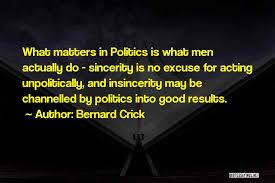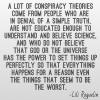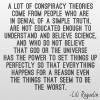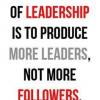Insincerity
Insincerity Pervades All Levels of Govt because......Prof. Olagoke
- By solomon2day
- On 04/02/2021
- Comments (0)
- In The People Talk
 Nigerians have continually expressed reservations over the deliberate lack of sincerity among all those responsible for governance at all levels.
Nigerians have continually expressed reservations over the deliberate lack of sincerity among all those responsible for governance at all levels.
This has brought about several distortions in facts and figures in every sector of the economy. In this interview, the Founder, Spiritual Head, and Grand Imam, Shafaudeeen-in-Islam Worldwide, Prof. Sabitu Olagoke opines that Nigeria's history has brought in its wake insincerity in governance at all levels. Excerpts :
Why do you think the lack of sincerity is widespread cutting across all levels of governance in Nigeria?
In the past in Nigeria, ideological goals always mark the differences in political formations and the type of governance to be offered by any of the parties in charge of governance at any point in time.
The leadership of such parties in the past used to follow the concept of algebra equation, where only like terms can be added or subtracted.
People, therefore, joined political parties based on their beliefs and interests.
Political parties under these conditions were easy to manage by the leaders and issues of easy decampment from a political party to another based on seeking better grounds, was not all that common.
For example, when the world was chiefly divided into ideological goals of capitalism or socialism, progressives were known to be people-oriented, while the capitalists were regarded as conservative oppressors who cared less about the people but care more about the gains of business through political interests.
The sincerity of purpose was, therefore, the order of the day because the type of leaders was easily identified with the kind of governance they would ideologically offer.
In Nigeria, the evolutional trend of political governance starting from the days of the colonial masters, discipline was the order of the day and the common challenge was how to drive out the perceived white oppressors who were considered to be alien to continue to dominate our political, social and economic lives.
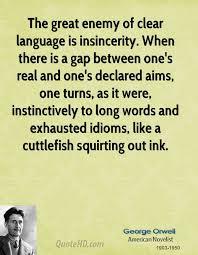
Though the hurting effects of tribalism and ethnicity were there, the common challenge of having a liberated nation formed out of the 1914 amalgamation preoccupied the united front formed by the founding fathers who struggled to fight for Nigeria's independence.
The culture of insincerity in governance then emerged because trust and loyalty had been murdered in the unfinished job of cleansing the nation through the bloody coup. The power struggle and power-sharing, therefore, became an issue of political hidden agenda as it reflected in the characteristic double tongues of the politicians and the emerging constitutions of 1979 and 1999 with which they were operating the governance agenda of the nation.
Lack of sincerity, therefore, became cultural and endemic affecting all spheres of our lives down to the core values of our integrity spreading over all agents of socialization-several homes are now formed through insincere pledges between intending couples, while along the line the sacredness of the institutions of marriages is put in danger.
Insincerity if not specifically addressed, may eventually reduce the quality of human capital down to the class of doubtful certification.
Insincerity in the religious terrain has led Nigerians into regrettable life of perversion because even religious leaders are found wanting of not been scripture compliant when the teacher is empty one can imagine the stuff their products are made of.
Nigerians are now thrown into the world of craze for material wealth and less spirituality.
The question of just worship and holiness ofGod now seem to be a mere waste of time by the few that care about the future of humanity because without God's divine intervention those who labor are doing so in vain. Is this not the basis for the various acts of terrorism, violence, and bloodshed?
How many of our houses of God can claim to still uphold the sacredness of religious sanctity when every one of us can attest to that most of these houses of God have become profane houses of promiscuities, iniquities, and havens of criminals. When Nigerians pass through the culture of insincerity to God, one can best imagine how the future of the next generation would look like.
The religious sphere is expected to cleanse the land of transgression and corrupt practices. A timely intervention by all stakeholders, the government, parents, teachers, professional bodies, religious leaders, and traditional rulers would do a lot of good for the country.
Suffice it now to say that a new Nigeria should emerge by offering necessary amendments to sectors that are ailing and the restructuring of the order of things beyond our considerations for mere material things. Only a nation built on the foundation of truth can survive the ordeals of life against all odds.

